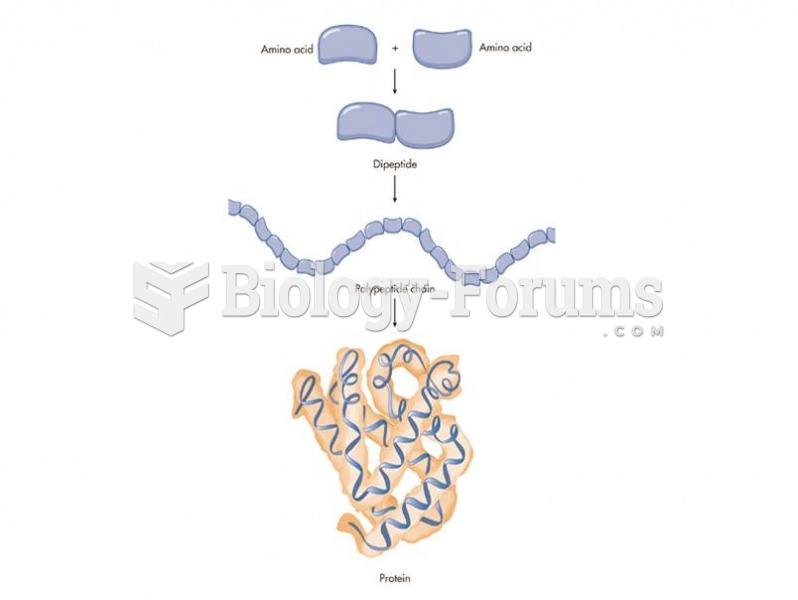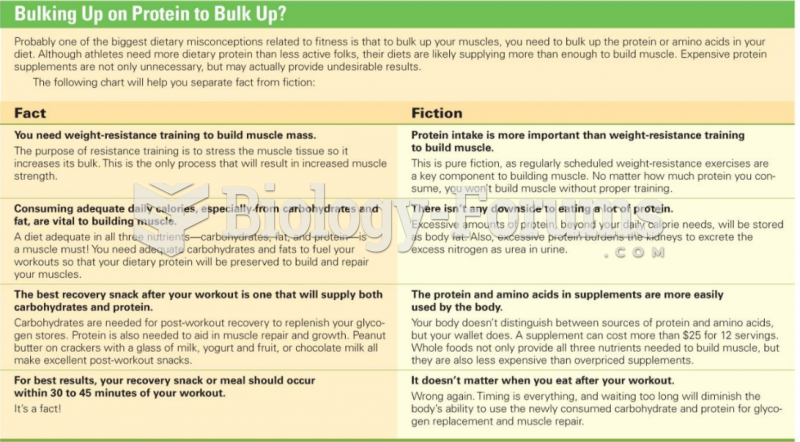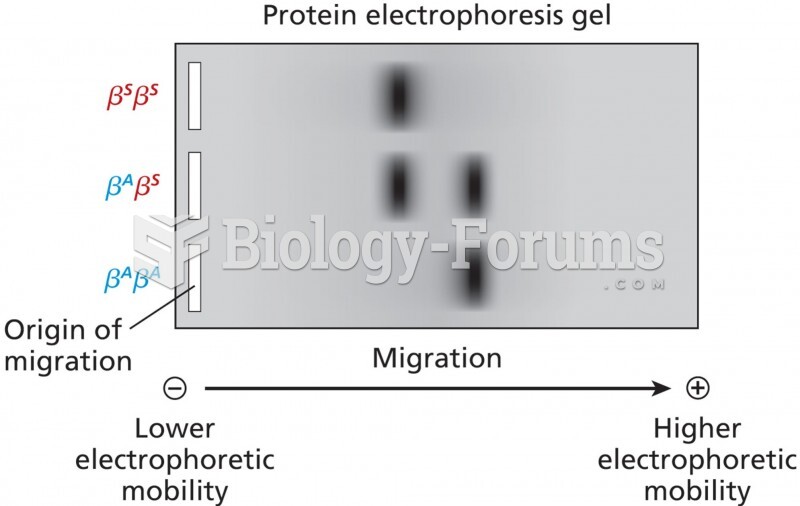|
|
|
A recent study has found that following a diet rich in berries may slow down the aging process of the brain. This diet apparently helps to keep dopamine levels much higher than are seen in normal individuals who do not eat berries as a regular part of their diet as they enter their later years.
Egg cells are about the size of a grain of sand. They are formed inside of a female's ovaries before she is even born.
Disorders that may affect pharmacodynamics include genetic mutations, malnutrition, thyrotoxicosis, myasthenia gravis, Parkinson's disease, and certain forms of insulin-resistant diabetes mellitus.
If you could remove all of your skin, it would weigh up to 5 pounds.
Earwax has antimicrobial properties that reduce the viability of bacteria and fungus in the human ear.







